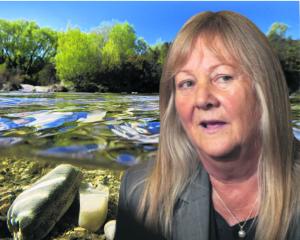Individual "piecemeal" decisions allowing development on hazard-prone land will continue without any long-term national strategic direction, Environmental Defence Society policy analyst Raewyn Peart said recently.
"It is crying out for national policy direction. It's a national issue which needs national direction," the Auckland-based environmental lawyer said.
Otago Regional Council had recently raised concerns about an Environment Court decision allowing a pole house to be built on flood-prone land at Karitane and was part of a local government group lobbying for a national policy statement on flooding.
Ms Peart, who had not read the Karitane decision, said the Environment Court focused on individual cases, on an individual property basis, because there was no overarching policy that it needed to take into account when making the decisions.
"Without it, is what you get at the moment."
The leaky homes crisis was an example of how many factors, including a loose legislative framework and relying on councils to deal with the issues, could lead to major problems for all levels of government and society.
In hazardous areas, there was another complication, climate change and the chance of more frequent and more intense storms, she said.
There were also two issues to deal with, Ms Peart said.
One, existing development in hazard zones; and two, new development or subdivision in areas known to be at risk.
"Any sensible management response is to avoid that, otherwise you are creating a big, expensive, traumatic problem for the future."
However, along the coast that was not happening and development was going ahead in areas known to be at risk.
"It's very shortsighted to try and argue individual risk in these issues, it is a public issue."
There was a need for a strong policy and planning framework to be developed so new development could not take place in areas identified as high hazard, she said.











